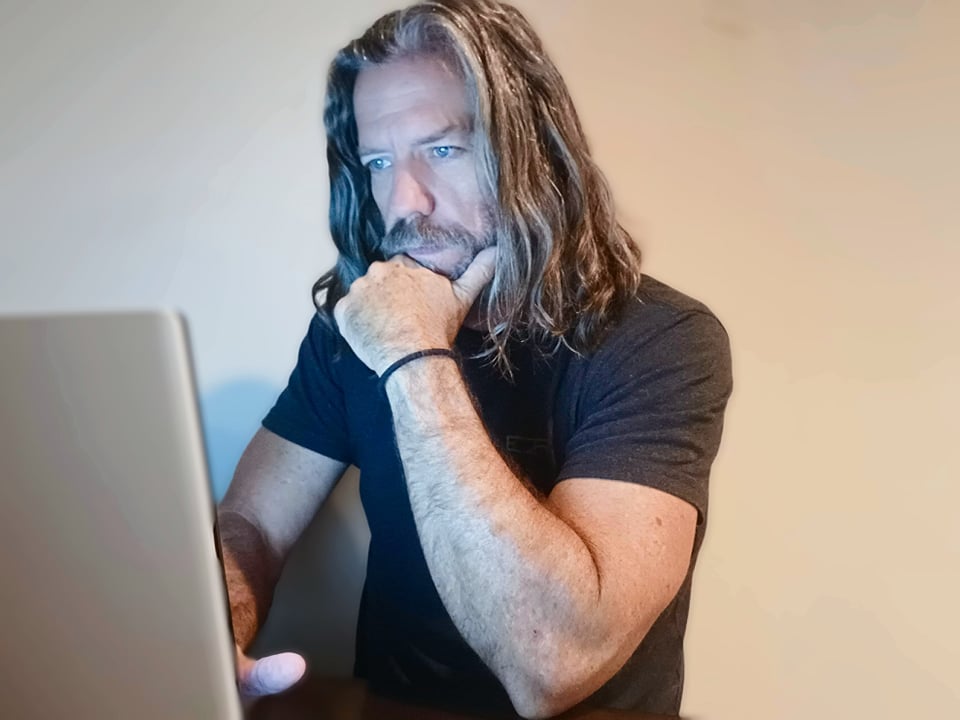
All memories are false, some more than others, so forgive me if I get some points wrong in sharing this. My favorite short story of all time is one entitled God Sees the Truth But Waits, by Leo Tolstoy. Sitting with my coffee this morning I thought about the story. I didn’t go back and read it before writing this.
In it is one of the most valuable lessons I’ve ever learned.
In the story, our main character Ivan (a foolish man, but not a criminal) is framed for a murder he didn’t commit. The man who framed him gets away free and goes on with a life of wickedness. Ivan is flogged and then imprisoned in a Gulag in Siberia for the murder and suffers there many decades. At first, he seethes with anger at the injustice, but at last he determines that the only one who knows the truth is God.
In prison, he grows in wisdom and spirituality, becoming a pious man. God uses him in the lives of the other prisoners, and he becomes a voice of reason and fairness. Even the prison officials see him as a good and wise man. Ivan spiritually learns that even if he suffers for a crime he didn’t commit, he is not a “good” man and that whatever he suffers, he deserves worse.
God uses Ivan in the prison to show what a pious man looks like under suffering. If Ivan had not been wrongly imprisoned, he would have gone on with a life of vanity and selfishness. Many years pass…
Later in the story, when Ivan is old, the real murderer arrives in the Siberian camp. He laughs bitterly at the irony of being locked up for stealing a horse. He also brags about committing a crime that sounds familiar to the one for which Ivan was sentenced to prison. Ivan suspects that Makar, the new inmate, is the one who framed him and Ivan’s old nature of seething with resentment over the injustice reappears. Later, he discovers that his enemy, Makar, is digging an escape tunnel under his bunk. Makar threatens to kill him if he reveals the truth. Ivan says that he doesn’t care what happens to him now. The murderer can do nothing unless God allows it, and he is in God’s hands. Always has been. God is sovereign and He knows the truth. Ivan determines that he will do as God directs regardless of the threats.
The guards discover the tunnel and learn of the planned escape, and they want to punish who is responsible. The officials know that Ivan is a righteous man and won’t lie so they try to get him to snitch, even threatening him with punishment if won’t reveal the guilty party. He refuses.
Later, as Ivan is in bed at night – at peace again – Makar appears by his bed and cries in repentance, kneeling and asking Ivan to forgive him. He admits he was the original murderer and that he framed Ivan. He promises to confess everything so that Ivan can be exonerated and freed from prison. Ivan tells him that he is old now, his wife has already remarried and gone on with her life. He has nothing on the outside. His life is over, and the prison is the only home he has left. He has nowhere to go. He is at peace now.
Makar does go and confess, but when the officials find Ivan to release him, they discover that he has passed away peacefully in his sleep.
Tolstoy uses Ivan and his suffering to paint a picture of our own nature and to illustrate the foolishness of us ever demanding to receive “what we deserve.” Our sense of justice is skewed because we hope to escape from the justice that is due our own sins while praying that justice is done to any who offend us. The question is: What is it if we suffer for sins we did not commit when we (even more so) do not suffer for the sins we do commit?
The story ably answers the question “Why do bad things happen to good people?” (Easy. There are no good people.) The moral of the story is NOT that we suffer because we are sinners, which is true. We do not suffer for them for the purpose of propitiation or atonement, which is impossible and a foolish conceit, but that we suffer for them as a natural consequence of our fallen nature (and, in a few cases, because our Master suffered unjustly, and we are not greater than our Master.)
In God Sees the Truth but Waits we learn that, like toddlers, when we are wronged, we become inflamed with a sense of justice! But when we wrong others (willfully or not,) we find it comforting and pleasant to escape justice. We want justice in the world and justice for our enemies and justice when we are wronged, but we escape justice all the time and are glad for it.
If you were falsely accused, would you demand that the error be corrected? Or would you say “Well, I definitely deserve that for the stuff I actually did and got away with”? Again, regardless of our opinions on this, none of our sufferings suffice to propitiate or atone for our real sins, that must be done by One who is not guilty at all, so it’s all a tempest in a very short teapot of life. Read the story and perhaps gain a better perspective on suffering unjustly.
***
Michael Bunker is a local columnist for BrownwoodNews.com whose columns appear periodically on the website.